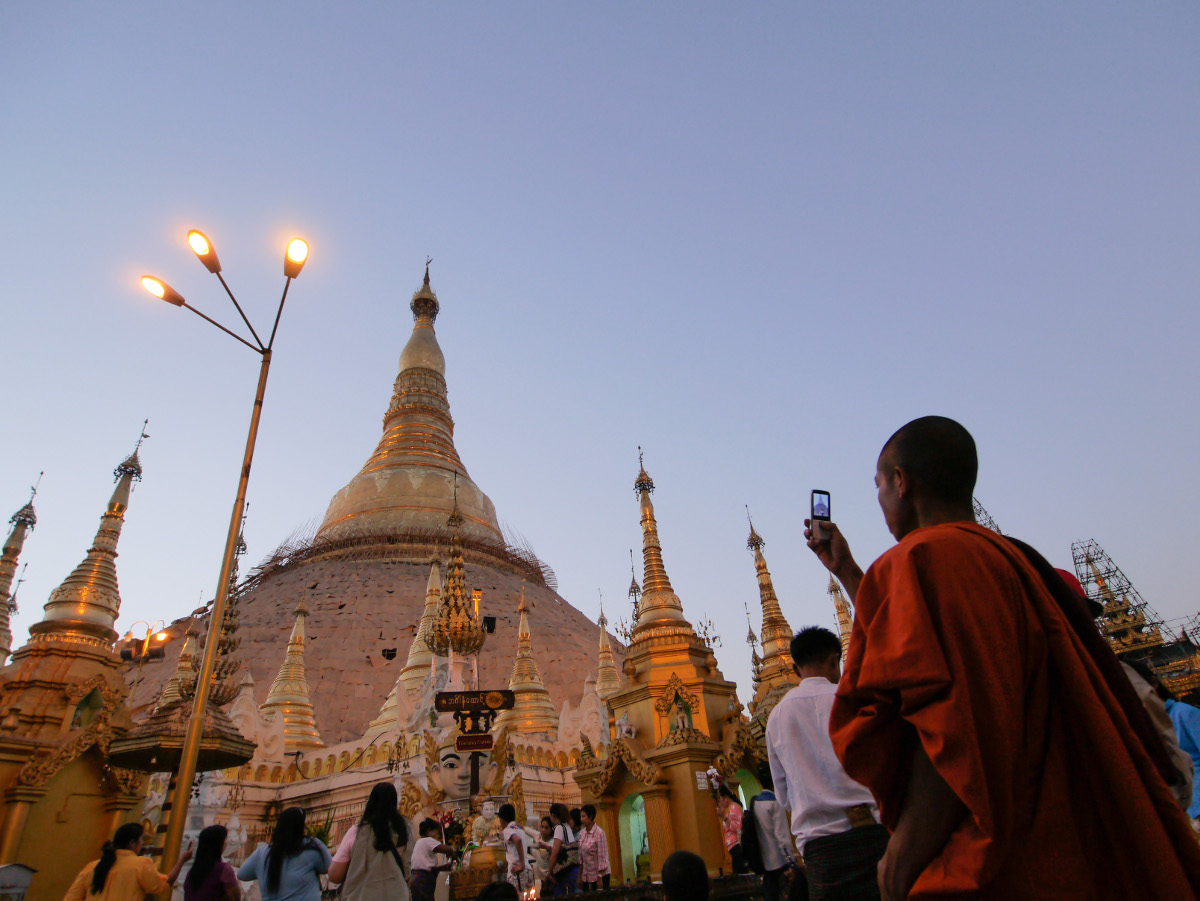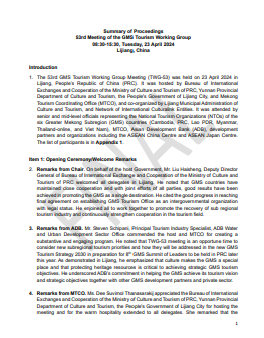Viet Nam and Laos discuss new partnerships to surge tourism
In a significant move to enhance their cultural and tourism cooperation, Viet Nam and Laos held a series of discussions this week to solidify their partnership.

The Tourism Working Group (TWG) comprises senior officials from the national tourism organizations of the six countries of the Greater Mekong Subregion. It serves as the advisory body to the Bangkok-based Mekong Tourism Coordinating Office (MTCO) and provides operational leadership and technical guidance to plan, implement, monitor, and evaluate subregional activities.
The working group meets at least twice a year.
MTCO serves as the secretariat for TWG, the MTCO Board, and the annual Mekong Tourism Forum.
In a significant move to enhance their cultural and tourism cooperation, Viet Nam and Laos held a series of discussions this week to solidify their partnership.
Cambodia’s tourism sector earned $3.63 billion in 2024, up 17.8 percent from $3.08 billion a year earlier, according to a report from the Ministry of Tourism (MoT) released on January 31.
The Tourism Authority of Thailand (TAT) has targeted four niche markets for next year: wellness, luxury experience, sports tourism and honeymoons.
Authorities of the northern border province of Lang Son and Guangxi Zhuang Autonomous Region of China held an online signing ceremony for a Memorandum of Understanding (MoU) to jointly develop a pilot smart border gate.

The 53rd GMS Tourism Working Group Meeting (TWG-53) was held on 23 April 2024 in Lijiang, People’s Republic of China (PRC). It was hosted by Bureau of International Exchanges and Cooperation of the Ministry of Culture and Tourism of PRC, Yunnan Provincial Department of Culture and Tourism, the People's Government of Lijiang City, and Mekong Tourism Coordinating Office (MTCO), and co-organized by Lijiang Municipal Administration of Culture and Tourism, and Network of International Culturalink Entities. It was attended by senior and mid-level officials representing the National Tourism Organizations (NTOs) of the six Greater Mekong Subregion (GMS) countries (Cambodia, PRC, Lao PDR, Myanmar, Thailand-online, and Viet Nam), MTCO, Asian Development Bank (ADB), development partners and organizations including the ASEAN China Centre and ASEAN Japan Centre.
Cambodia's tourism sector continues on an upward trajectory, with the country making concerted efforts to surpass pre-pandemic tourism levels through strategic campaigns, international collaborations, and infrastructural enhancements. In the initial months of 2024, Cambodia has seen a significant uptick in international tourism.
Thailand is on track to welcome 36 million international visitors in 2024, according to the Kasikorn Research Centre (KResearch). This forecast is based on the robust performance in the early months of the year, which marked a notable 50% increase in foreign arrivals, totaling 6.4 million in January and February.
The Asian Development Bank (ADB) will support the sustainable, inclusive, and resilient urban development of Luang Prabang, Lao People’s Democratic Republic (Lao PDR), with financing worth $35 million via a concessional loan and a $10 million grant. The project is set to (i) improve the quality and coverage of urban infrastructure and services, (ii) strengthen institutions and capacity to foster climate and disaster resilient development pathways, (iii) promote inclusive and gender-responsive urban planning, and (iv) enhance women's leadership and economic empowerment. The Government of Lao PDR will complement the financing with in-kind contributions to support counterpart salaries and office facilities
The 52nd GMS Tourism Working Group Meeting (TWG-52) was held on 21 November 2023. It was attended by senior and mid-level officials representing the National Tourism Organizations (NTOs) of the Greater Mekong Subregion (GMS) countries, Mekong Tourism Coordinating Office, development partners and organizations including the ASEAN Japan Centre, GMS Secretariat and private sector.

This brief explores how bookings for alternative accommodations have soared in Southeast Asia and why stronger regulation can help maintain quality standards, increase tax revenue, and maximize local economic benefits.